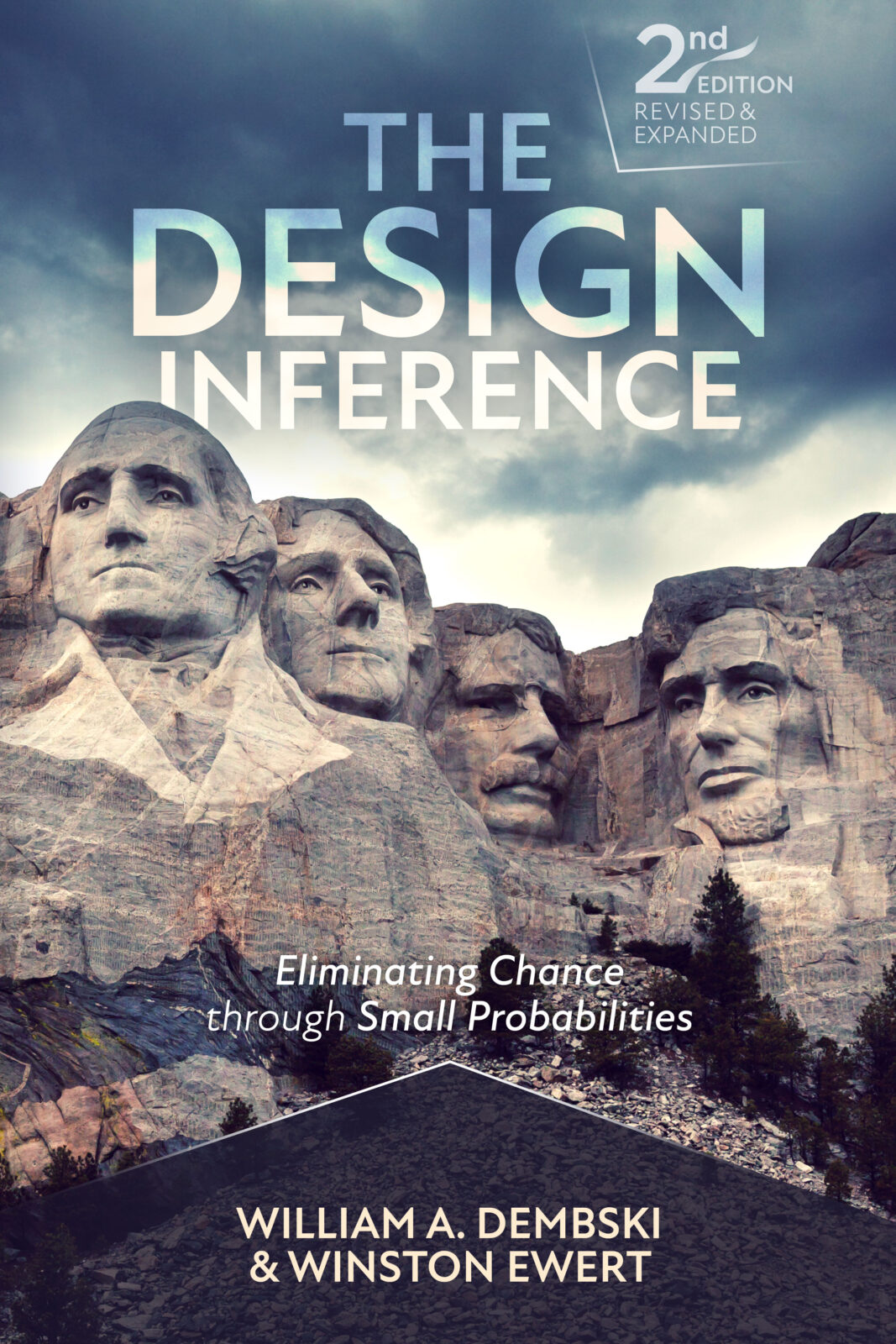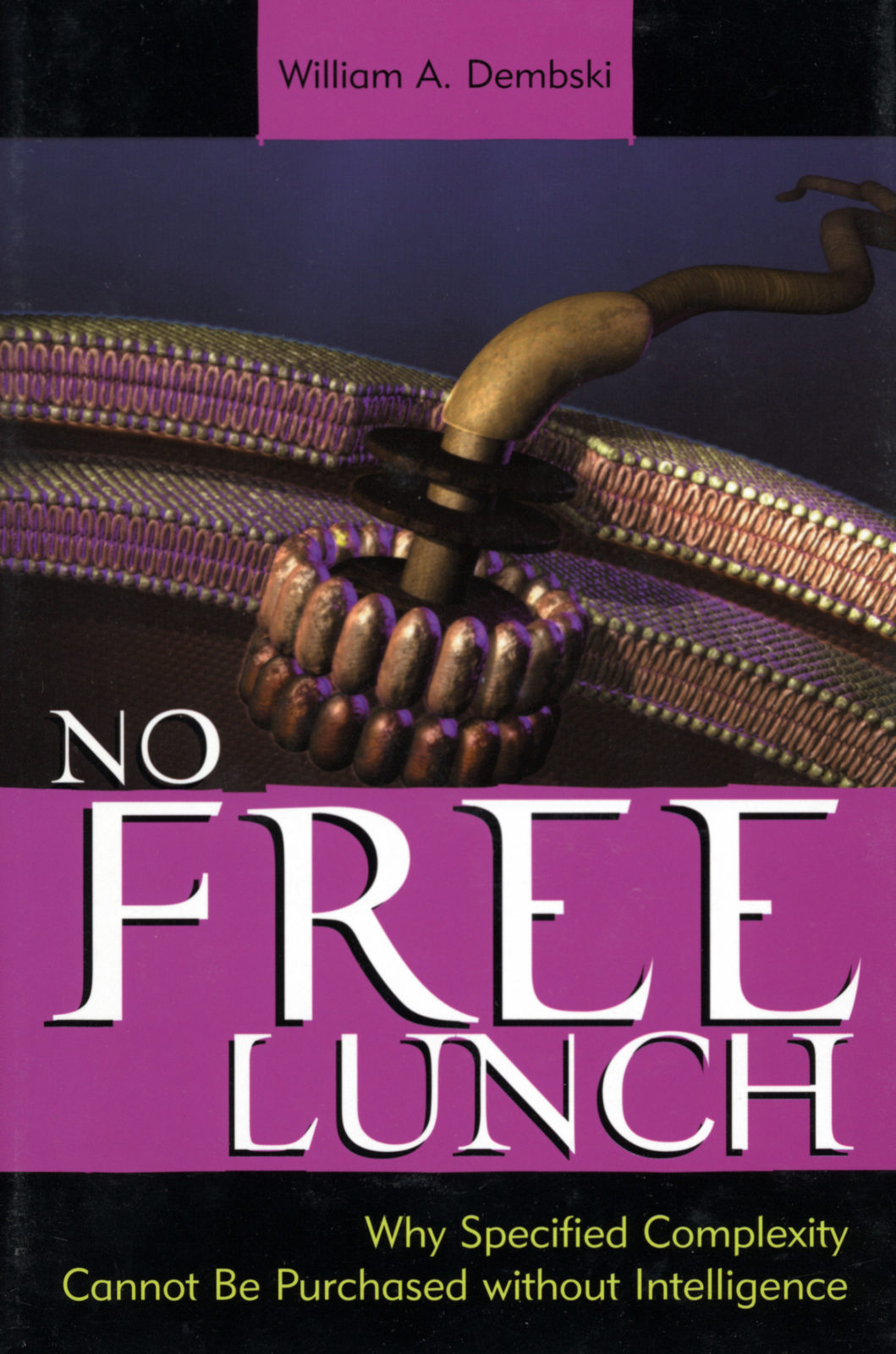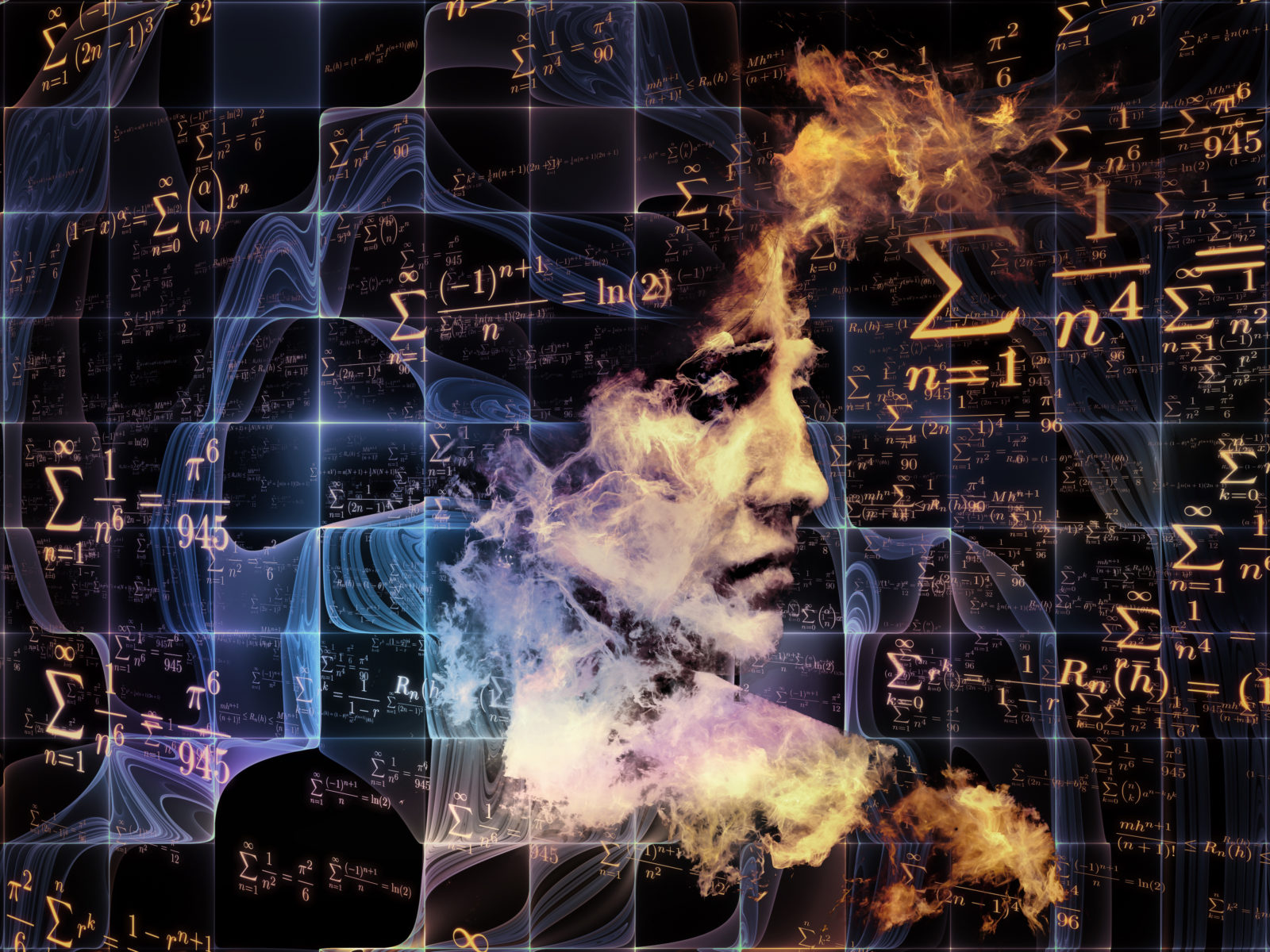


Yes, Intelligent Design Is Detectable by Science
Editor’s note: The online journal Sapientia recently posed a good question to several participants in a forum: “Is Intelligent Design Detectable by Science?” This is one key issue on which proponents of ID and of theistic evolution differ. Stephen Meyer, philosopher of science and director of Discovery Institute’s Center for Science & Culture, gave the following reply. Biologists have long Read More ›

According to Theistic Evolution, Is Design in Nature Detectable?
Theistic evolution proponents who do not openly deny that God guided the development of life typically insist that His guidance is unobservable in biology. Francis Collins proposes this view in The Language of God, suggesting that from God’s perspective the outcome of evolution could “be entirely specified… while from our perspective” evolution “would appear a random and undirected process.” [The Language Read More ›

No Free Lunch
No Free Lunch, the sequel to mathematician and philosopher William Dembski's Cambridge University Press book The Design Inference, explores key questions about the origin of specified complexity. Dembski explains that the Darwinian search mechanism of random mutation coupled with natural selection is incapable of generating novel complex, specified information (CSI).
This observation translates into "No Free Lunch" (NFL) theorems, which Dembski explains are inherent constraints upon natural systems. Natural Darwinian mechanisms can shuffle this information around, but only intelligence can generate novel CSI. In other words, when it comes to generating truly novel biological complexity, Darwin can have no free lunch...

Philosophical Objections to Intelligent Design
I. Is Intelligent Design Falsifiable? Some reviewers of Darwin’s Black Box (Behe 1996) have raised philosophical objections to intelligent design. I will discuss several of these over the next few sections, beginning with the question of falsifiability. To decide whether, or by what evidence, it is falsifiable, one first has to be sure what is meant by “intelligent design.” By Read More ›

Science and Design
En Español When the physics of Galileo and Newton displaced the physics of Aristotle, scientists tried to explain the world by discovering its deterministic natural laws. When the quantum physics of Bohr and Heisenberg in turn displaced the physics of Galileo and Newton, scientists realized they needed to supplement their deterministic natural laws by taking into account chance processes in Read More ›
An Analysis of Homer Simpson and Stephen Jay Gould
Note: The Simpson’s, television’s popular prime-time cartoon known for its satirical commentary on various social issues, recently took a shot at the creation-evolution debate by featuring Stephen Jay Gould prominently in one of its episodes. Here is Bill Dembski’s review and observations of that episode. For those of you who regularly watch the Simpsons, you’ll know that to have one’s Read More ›